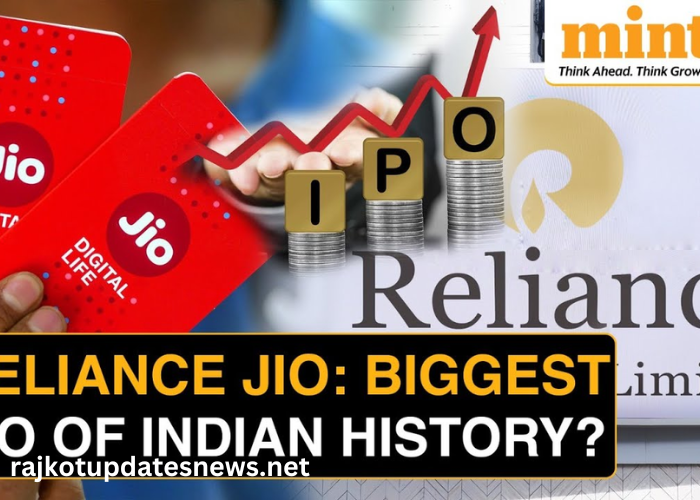The Indian economy has shown remarkable resilience and potential for growth, even in the face of global uncertainties. Indian CEOs are optimistic about the country’s economic future, anticipating robust growth driven by various factors such as technological advancements, government initiatives, and a young, dynamic workforce. This article explores the reasons behind this optimism, the sectors poised for growth, and the challenges that need to be addressed to sustain this positive trajectory.
Current Economic Landscape
India’s economy has been on a recovery path following the disruptions caused by the COVID-19 pandemic. The country’s GDP growth rate has shown signs of improvement, supported by strong consumer demand, increased industrial activity, and a rebound in the services sector. Key economic indicators such as industrial production, export performance, and inflation rates suggest a positive outlook for the near future.
Technological Advancements
One of the significant drivers of economic growth in India is the rapid pace of technological advancements. The digital revolution, characterized by the proliferation of internet connectivity, mobile technology, and digital services, has transformed various sectors. Indian CEOs believe that continued investment in technology and innovation will enhance productivity, create new business opportunities, and drive economic growth.
Government Initiatives
Government initiatives play a crucial role in shaping the economic landscape. Programs such as Make in India, Digital India, and Atmanirbhar Bharat (Self-Reliant India) are designed to boost manufacturing, promote digital infrastructure, and enhance self-sufficiency.
These initiatives are expected to attract foreign investment, create jobs, and foster economic development. Indian CEOs are optimistic that supportive government policies will continue to drive growth.
Young and Dynamic Workforce
India’s demographic dividend, characterized by a large and young population, is another factor contributing to economic optimism. A youthful workforce is seen as a valuable asset, driving innovation, entrepreneurship, and economic dynamism. Indian CEOs expect that with the right skills development and education initiatives, this young workforce will significantly contribute to the country’s economic growth.
Growth in the IT and Services Sector
The information technology (IT) and services sector has been a cornerstone of India’s economic growth. Indian IT companies are global leaders, providing services to clients worldwide. The sector’s growth is driven by digital transformation, increasing demand for IT services, and the rise of new technologies such as artificial intelligence (AI) and blockchain. Indian CEOs expect the IT and services sector to continue its upward trajectory, contributing significantly to the economy.
Manufacturing and Industrial Growth
The manufacturing sector in India is poised for substantial growth, driven by initiatives like Make in India and the Production Linked Incentive (PLI) scheme. These programs aim to boost domestic manufacturing capabilities, reduce import dependency, and enhance export competitiveness. Indian CEOs anticipate that with improved infrastructure and regulatory support, the manufacturing sector will become a key driver of economic growth.
Financial Sector Reforms
Reforms in the financial sector are critical for sustaining economic growth. Indian CEOs support measures to strengthen the banking system, improve access to credit, and enhance financial inclusion.
Recent reforms, such as the implementation of the Insolvency and Bankruptcy Code (IBC) and the recapitalization of public sector banks, are expected to improve the sector’s stability and efficiency.
Renewable Energy and Sustainability
Sustainability and renewable energy are gaining prominence in India’s economic agenda. The government’s commitment to reducing carbon emissions and increasing the share of renewable energy in the power mix is creating new business opportunities.
Indian CEOs are optimistic about the growth prospects in the renewable energy sector, including solar, wind, and bioenergy, which are expected to contribute to sustainable economic growth.
Healthcare and Pharmaceuticals
The healthcare and pharmaceutical sector in India has shown resilience and growth potential, especially in the wake of the COVID-19 pandemic. Indian pharmaceutical companies are major players in the global market, known for their generic drugs and vaccines. CEOs in the sector expect continued growth driven by increased healthcare spending, innovation, and export opportunities.
Infrastructure Development
Infrastructure development is a critical enabler of economic growth. Investments in roads, railways, ports, and airports are essential for enhancing connectivity and boosting trade. Indian CEOs are optimistic about the government’s infrastructure push, which is expected to improve the business environment and attract more investments.
E-commerce and Retail Growth
The e-commerce and retail sector in India has experienced exponential growth, driven by increasing internet penetration and changing consumer preferences. The rise of online shopping platforms and digital payment systems has revolutionized the retail landscape. Indian CEOs expect this sector to continue growing, creating new business opportunities and contributing to economic growth.
Education and Skill Development
Education and skill development are vital for harnessing India’s demographic dividend. Indian CEOs emphasize the importance of improving the quality of education and aligning it with industry needs. Initiatives to enhance vocational training and upskilling are expected to prepare the workforce for the demands of a rapidly evolving economy.
Challenges and Risks
Despite the optimism, Indian CEOs are mindful of the challenges and risks that could impact economic growth. Issues such as regulatory hurdles, infrastructure bottlenecks, and geopolitical tensions need to be addressed. Additionally, ensuring equitable growth and reducing income disparities are essential for sustainable economic development.
Role of Small and Medium Enterprises (SMEs)
Small and Medium Enterprises (SMEs) play a crucial role in India’s economic growth. They are significant contributors to employment and industrial output. Indian CEOs recognize the importance of supporting SMEs through access to finance, technology adoption, and market linkages. Strengthening the SME sector is expected to have a positive ripple effect on the overall economy.
Global Economic Environment
The global economic environment has a direct impact on India’s economic prospects. Indian CEOs are aware of the interconnectedness of global markets and the influence of factors such as trade policies, economic slowdowns in major economies, and international capital flows. Maintaining a favorable global economic environment is essential for sustaining India’s growth momentum.
Conclusion
Indian CEOs’ optimism about economic growth is grounded in the country’s inherent strengths, ongoing reforms, and the potential of its young population. While challenges remain, the overall outlook is positive, with various sectors poised for growth and development. The combined efforts of the government, businesses, and the workforce will be crucial in realizing this potential and driving India towards a prosperous future.



